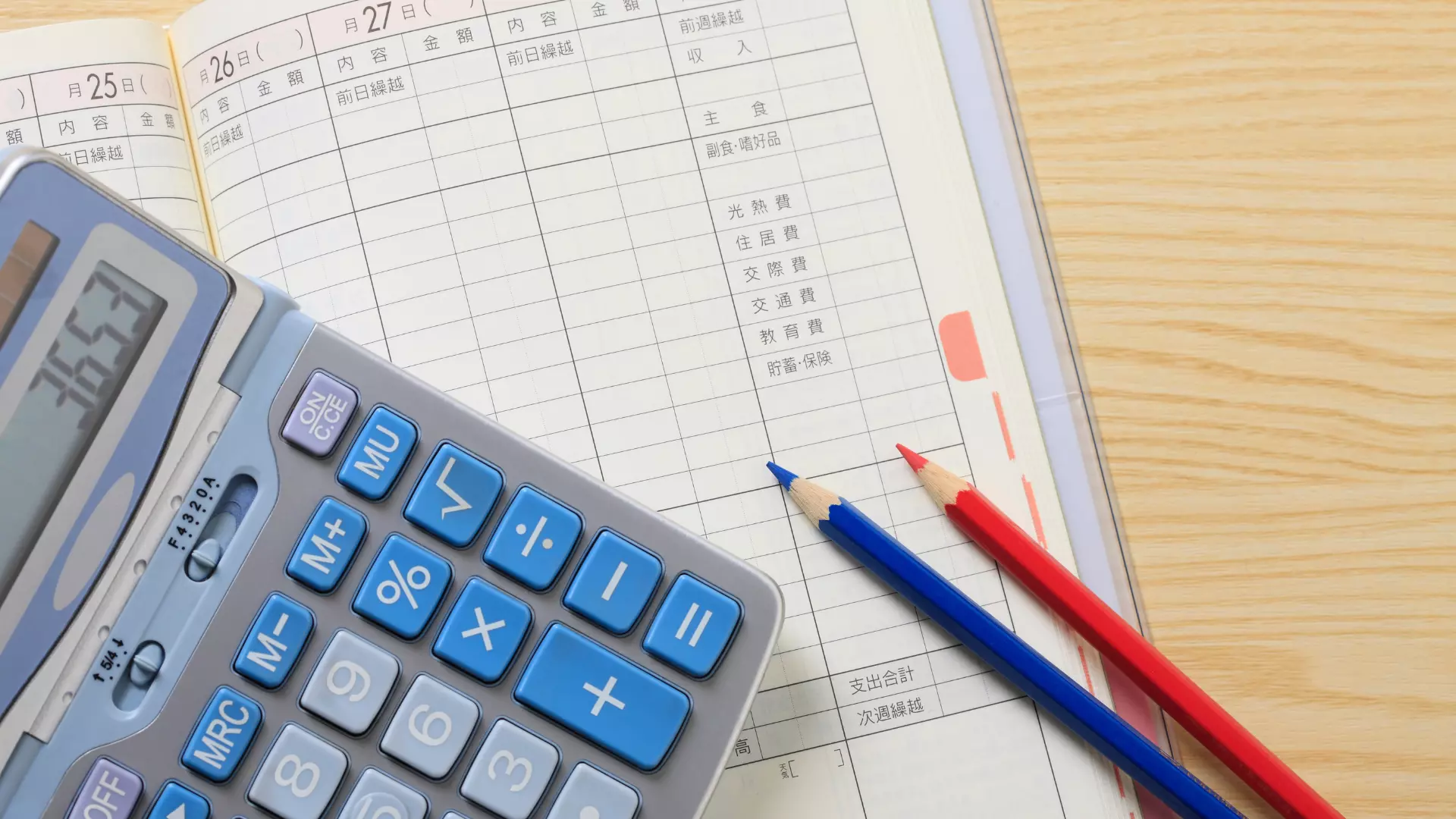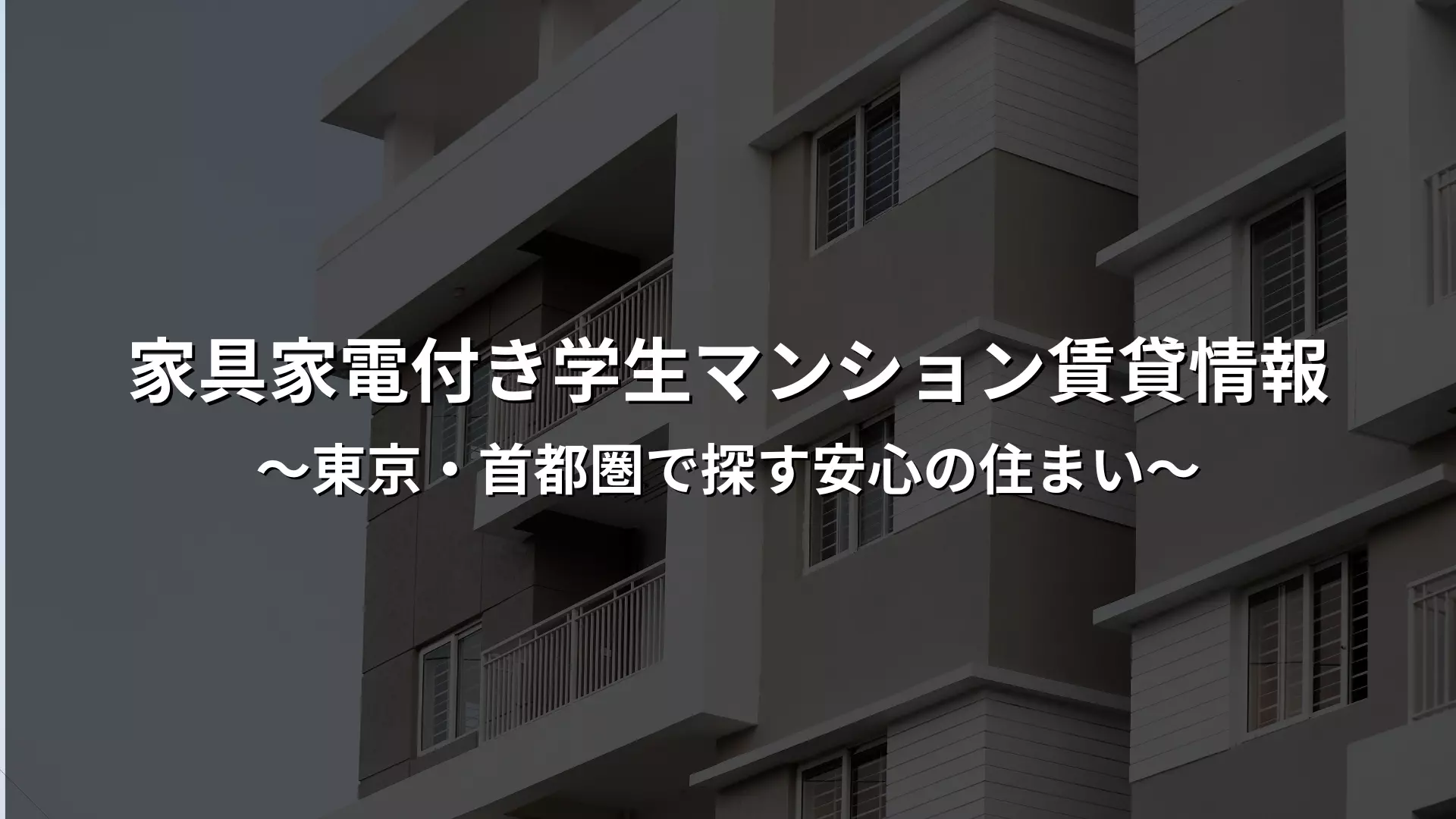Is it possible to live alone on a take-home pay of 120,000 yen? Living standards and reality
When living alone on a monthly salary of 120,000 yen, the key point is how to balance living expenses and rent. Rent and prices differ between urban and rural areas, and even with the same income, there is a difference in ease of living. In order to live comfortably while maintaining one's standard of living, it is essential to review fixed and variable expenses.
In this chapter, we will explain the breakdown of living expenses based on monthly and annual income, the balance of necessary expenses, and the characteristics and ideas of people who have high and low living expenses.
Estimated living expenses and breakdown based on monthly and annual income
A take-home pay of 120,000 yen converts to an annual income of approximately 1.44 million yen, so managing living expenses when living alone requires careful planning. It's generally considered ideal to keep rent under 30% of your take-home pay, so for a 120,000 yen salary, rent should be around 35,000 to 40,000 yen. The remaining budget needs to cover food, utilities, communication, transportation, daily necessities, and entertainment. Average ranges for food are approximately 20,000 to 30,000 yen, utilities 8,000 to 12,000 yen, and communication 5,000 to 8,000 yen. These expenses vary depending on your region and lifestyle, so it's important to create a budget that suits your lifestyle.
Especially in urban areas like Tokyo and Chiba, even the same rent amount can vary greatly in terms of room size and age of the building. When searching for a property, be sure to check not only the monthly amount but also the total amount including management fees and common area charges. Also, first-year employees, part-time workers, and part-timers often do not receive bonuses or overtime pay, so it is important to understand your total annual income (face value) and make plans accordingly. A monthly salary of around 150,000 yen will give you greater flexibility in your lifestyle, but since there are industries where the average salary is lower depending on gender and age, it is a good idea to check income information that meets your requirements.
The balance between the amount needed to maintain a standard of living and expenses
To maintain a standard of living even with a take-home pay of 120,000 yen, it is essential to clearly prioritize your expenses. First, it is important to review fixed expenses such as rent and communication fees and reduce unnecessarily expensive contracts. After that, by making adjustments to variable expenses such as food and entertainment, you can live without sacrificing your quality of life. For example, you can cook more meals at home, switch to a low-cost SIM card, and make effective use of public transportation. By combining fixed cost reductions with variable cost control, you can live comfortably even with a low income.
In order to reduce living expenses, it is important to distinguish between "necessary expenses" and "unnecessary expenses." For example, simply limiting supermarket shopping to once or twice a week and reducing food waste can save thousands of yen per year. Another effective way is to compare gas, electricity, and water contract plans and switch to cheaper rates. These small adjustments can make a big difference in supporting a tight household budget.
Characteristics and strategies for people with high and low living expenses
Even if two people have the same take-home pay of 120,000 yen, their daily actions and housing choices differ depending on whether they have high or low living expenses. People with high living expenses eat out and use convenience stores a lot, and tend not to review their rent or utility bills. On the other hand, people with low living expenses live in low-rent properties or sharehouses, and reduce expenses by cooking mainly at home. They also make small adjustments, such as buying daily necessities in bulk to eliminate waste. Rethinking how you live and your daily habits is a major key to successfully living alone.
People who are living alone for the first time or working adults in their early twenties often find it difficult to manage their living expenses at first. People with low living expenses compile a list of their monthly expenses and review them as necessary. It is also effective to take advantage of free consultation services or local government life support services to receive advice on saving money and managing your household finances.
Rent guide and property selection by area
If you're living alone on a monthly salary of 120,000 yen, setting your rent is an important factor in determining the balance of your overall living expenses. If your rent is too high, it will affect your food and utility costs, making it difficult to maintain your standard of living. On the other hand, keeping your rent low will give you more financial security, but you may need to compromise on the location and property conditions.
In this chapter, we will provide a wide range of information, including tips for finding a property under 40,000 yen, the difference in average rent between urban and rural areas, the advantages and disadvantages of choosing a cheap property, and the option of a shared house.
How to find a property for single living under 40,000 yen and points to note
If your take-home pay is 120,000 yen, setting your rent to 40,000 yen or less will make it easier to manage your living expenses. When searching, it is efficient to set a rent limit on a real estate website and narrow down your search by area, age of the building, and facilities. However, cheap properties often come with conditions such as being old, far from the station, or having small rooms, so be sure to balance this with your daily needs when making your selection. When viewing a property, be sure to check the surrounding environment, security, and the condition of the interior facilities to avoid unexpected expenses once you start living there.
In popular areas such as Tokyo and Chiba, there is particularly strong competition for properties priced under 40,000 yen, and it is not uncommon for them to be under contract within days of being listed. It is important to check not only the monthly rent but also the total amount including the security deposit, key money, initial purchase cost, and management fees, and compare the contract terms in detail. The conditions proposed by the sales representative may have benefits but also carry some risks, so it is best to check everything, including earthquake resistance and the surrounding environment, until you are satisfied before proceeding with the contract.
Differences in average rent and living costs by area (urban and rural areas)
Average rent is high in urban areas, with even a studio apartment often costing over 50,000 yen. On the other hand, in rural areas, a home with the same conditions can sometimes be rented for around 30,000 yen, making it easier to keep living costs down. Cheaper rent means you can use the money for food, savings, hobbies, etc., broadening your lifestyle. However, rural areas can have less convenient transportation and shopping, so make sure to check in advance whether it suits your lifestyle. Understanding the relationship between average rent and living costs in each area will help you plan your long-term life.
According to actual statistics, the average rent for a single person in Tokyo's 23 wards is around 70,000 yen, around 50,000 yen in major cities in Chiba Prefecture, and in regional cities it tends to be in the 30,000 yen range. The total cost of living can vary by more than 1.5 times depending on the area, so you need to consider the balance with your workplace and commuting time. Especially when considering moving to a regional area, be sure to also research the work environment, income requirements, and local support systems.
The pros and cons of choosing a cheap property
The biggest advantage of cheap properties is that you can keep down rent, which accounts for a large portion of your living expenses. You can use the money you save to invest in your future, such as savings, hobbies, or improving your skills. Another advantage is that there are a wide variety of areas and floor plans available, making it easy to find an option that suits your lifestyle.
On the other hand, you may need to compromise on the age of the building, location, and facilities, which may result in a loss of comfort and convenience. Long commute times in particular increase the burden of travel expenses and time, so it's important to compare the overall cost of living. By choosing a home that takes into account your entire daily life, rather than just focusing on low prices, you'll be able to enjoy a high level of satisfaction.
Additionally, extremely cheap properties may be accident-prone or run by management companies that are slow to respond to repairs. In some cases, properties may not have air conditioning or hot water heaters, so be sure to check reviews and reputations before signing a contract, and also find out about the neighbors and management system. If necessary, compare multiple real estate companies and rental information sites to understand the differences in terms and conditions, which will help you make a more appropriate decision.
The option of a share house to reduce rent and living expenses
A shared house is a way of living where multiple people share the kitchen, living room, etc., and rent and utility bills are often included in the price, which can significantly reduce living expenses. Even in urban areas, there are many properties available for under 40,000 yen, and you may be able to secure a larger space in a better location than living alone.
Another attractive feature is that many properties come with furniture and appliances, allowing you to save on initial costs. The tenant composition can be mixed gender, same-sex only, double rooms, or private rooms, so you can choose the one that suits your lifestyle. However, the rules for using shared spaces and your compatibility with other residents are also important points. If it suits your lifestyle, it can be an option that combines cost and convenience.
Recently, some management companies have started hosting events for residents, such as English conversation classes and cooking classes, allowing you to broaden your lifestyle. Since the monthly fee is fixed and utilities are included, it's easy to manage your finances, making these share houses especially popular with first-year workers and people in their late twenties who want to increase their savings. Before signing a contract, be sure to check the terms of use and shared rules directly to determine whether you can live comfortably, including the shared environment beyond your private room.
Search for a room
Only furnished properties with appliances are listed!
Tips for saving money on living expenses
For a single person with a take-home pay of ¥120,000, the comfort of their life depends on how much they can reduce their living expenses within their limited income. Saving money may bring to mind images of restraint and restriction, but by reviewing their daily spending and finding ways to reduce waste, it is entirely possible to cut costs without sacrificing quality of life.
Here, we will explain in detail how to review your food and utility bills, how to reduce communication and transportation costs, and how to live a lifestyle that keeps costs down for hobbies and entertainment.
Reviewing food and utility costs and tips for saving money
Food costs account for a large portion of living expenses, so switching to a lifestyle centered on cooking at home is the first step to saving money. Buying in bulk on the weekend and planning your ingredients will help reduce unnecessary purchases and eating out. Utility bills can also be reduced with small everyday efforts, such as adjusting the air conditioner temperature, switching to LED lighting, and shortening shower times. It is also effective to review your contract plan using a utility comparison site. Once you make these reviews a habit, it will be easy to continue and will lead to savings of tens of thousands of yen per year.
Furthermore, you can keep your monthly food expenses low just by taking advantage of supermarket sale days and point redemption days. For utility bills, it is effective to compare rates with each contracting company and check basic saving actions, and simultaneously reduce your usage directly and review your rate plan.
How to reduce communication and transportation costs
Communication costs can be significantly reduced by switching to low-cost SIM cards or fiber optic lines. Simply reviewing your current usage and canceling unnecessary options and excessive data plans can also be effective. Regarding transportation costs, you can reduce your daily expenses by using commuter passes or coupon tickets, commuting by bicycle or walking. You can also reduce transportation costs by planning your weekend outings and reducing the number of trips you make. Even small savings can add up over a month.
In particular, transportation costs and communication infrastructure fees vary by prefecture, so comparing by region will help you further optimize your plan. Transportation IC card point systems and monthly plans based on frequency of use are also convenient, so choose one that suits your lifestyle.
Tips for keeping hobby and entertainment costs down
Hobbies and entertainment are a joy in life, but spending too much on them can put a strain on the household budget. There are many ways to feel fulfilled while keeping expenses down, such as taking advantage of free or low-cost events and facilities, borrowing books and DVDs from the library, and finding exercise or hobbies you can do at home. You can also reduce waste by reviewing the frequency of your use of subscription services and limiting them to only what you really need. It's important to think of saving money not as a matter of sacrifice, but as a way to make smart choices and enrich your life.
You can also take advantage of local public facilities and online events to spend quality time at low cost. Regularly checking for free trials and limited-time campaigns can help you find opportunities to pick up new hobbies or learn new skills while keeping costs down.
Saving money and preparing for the future
Living alone on a monthly salary of 120,000 yen, it's easy to find yourself struggling just to manage your daily living expenses, but saving for the future is also essential. By saving even small amounts in a planned manner, you can prepare for unexpected expenses and future life events. It's also important to create a life plan that takes into account ways to increase your income and future burdens such as pensions, insurance premiums, and taxes.
Here we will explain savings guidelines and management methods, how to increase your income through a side job or changing jobs, and how to plan your household finances from a long-term perspective.
Monthly savings target and management method
The ideal goal for saving is to aim for 20% of your income, but if your take-home pay is 120,000 yen, it's recommended that you start with around 10%. Calculating your monthly living expenses first and creating a system to automatically transfer any surplus to a savings account will make it easier to continue. Using a household accounting app will help you visualize your income and expenses and reduce unnecessary spending. Making even a small amount into the habit of saving will give you peace of mind for the future.
Even if your current income is low, it's important to compare the savings amount and period and choose the method that suits you best. By using a bank that allows you to save directly from your salary account or an online bank that allows you to flexibly adjust your monthly savings, you can increase your savings conveniently and reliably.
How to increase your income through a side job or career change
Increasing your income through a side job or changing jobs is an effective way to improve your life on a limited income. There is an increasing number of side jobs that can be done online from home or that utilize your skills, allowing you to earn an income without increasing the burden on your daily life. If you are considering changing jobs, it is advantageous to gather information about the industry and job type, and increase your market value by obtaining qualifications and acquiring skills before taking action.
Some companies have comprehensive bonus and incentive systems, and some have systems in place that increase income based on work performance and evaluations. By increasing your sources of income, you can expect to have more money to spend on living expenses and increase your savings.
In particular, employment at large companies and growing industries offers substantial base salaries and benefits, and if your desired conditions are met, you can secure a stable income over the long term. Furthermore, by utilizing local government and national side job support systems, you can acquire skills while keeping initial and learning costs down. When job hunting, it is important to understand industry trends and the demand for related qualifications, and to choose an environment where you can utilize your strengths.
Life planning that takes into account pensions, insurance premiums, and taxes
To ensure a stable future lifestyle, you need to consider fixed expenses such as pensions, insurance premiums, and taxes. National pension and health insurance have fixed monthly payments, and late payments incur late fees, so be careful. Income tax and local resident tax are also levied according to your annual income. Creating a long-term life plan that includes these expenses will help prevent future cash shortages. It is important to understand your entire household finances and review them as necessary.
In addition, the amount of insurance you need and your tax burden will change depending on your age and family structure. Compare insurance premiums and tax-saving systems that suit your current life stage and make a long-term, manageable plan.
Search for a room
Only furnished properties with appliances are listed!
Experiences of people who have lived alone and key points for success
The lifestyle patterns and saving methods of people who actually live alone on a take-home pay of 120,000 yen can be useful for those who are just starting out. While the allocation of living expenses and priorities for spending vary from person to person, there are commonalities among successful people, and there are also factors that cannot be overlooked among unsuccessful people.
Here we will introduce the reality of life with concrete examples and summarize tips for stabilizing your daily life.
Example of a lifestyle pattern for someone living on a take-home pay of 120,000 yen
When living on a take-home pay of 120,000 yen, many people keep their rent to around 35,000 yen, food expenses in the 20,000 yen range, and utility bills under 10,000 yen. Communication and transportation costs total around 10,000 yen, with the remainder spent on daily necessities, entertainment, and savings. On weekends, they tend to cook at home rather than eat out, and they incorporate cost-saving measures such as spending time at free events or in parks. This type of lifestyle pattern is easy to maintain without straining yourself, and leads to a stable lifestyle in the long term.
Prices and rents vary by prefecture, so even if you have the same income, the ease of living will vary. People in their first year of employment or those with jobs that pay a lower base salary tend to keep their rent and fixed costs lower. When considering moving, it's a good idea to check the balance between convenience and cost by referring to reviews and reputations of the area.
Examples of saving and creative ways of people who manage their finances well
Successful people thoroughly review their fixed expenses and actively take advantage of low-cost SIM cards, cheap rental properties, and shared housing. They save on food costs by buying in bulk, taking advantage of sale days, and preparing food in advance, and they find ways to cut down on eating out. They also manage their expenses with a household accounting app and stay motivated by setting monthly savings targets. They view saving as a "choice" rather than "restraint," and are known for their approach of reducing spending while maintaining quality of life.
Furthermore, available public services and support systems vary by prefecture, so some people research these beforehand. Reviewing your fixed fee contracts at least once a year and updating to a plan that suits your lifestyle will lead to long-term savings success.
Tips to learn from mistakes when managing expenses
A common example of failure is choosing a property with high rent and utility bills, putting a strain on monthly living expenses. Also, if you don't keep a household account book and don't understand your expenses, you won't realize you're wasting money and won't be able to save. Furthermore, relying too much on sales and credit card installments will increase your payment burden later on. When it comes to managing your expenses, it's important to set a limit on your living expenses from the very beginning and manage within that range.
In particular, if you decide to sign a contract or purchase a service based solely on convenience, there is a risk that your monthly costs will gradually increase. By checking reviews and reputations and carefully examining the contract details before making a decision, you can prevent unnecessary expenses.
How to use household management apps and tools
Efficient household management is essential for living alone on a limited income. While paper household ledger books are effective, in recent years, smartphone apps and online tools have made it possible to manage expenses without spending a lot of time. Household ledger apps automatically record data, reducing missed entries and making it easier to keep track of living expenses.
Here we will compare recommended free apps, show you how to reduce waste by visualizing your spending, and introduce some examples of people who have actually successfully saved money.

Comparison of recommended free household accounting apps
Free apps include Money Forward ME, Zaim, and Moneytree, which can be linked to bank accounts and credit cards to automatically record deposits and withdrawals. Money Forward offers extensive asset management functions, Zaim offers highly customizable household accounting, and Moneytree features a simple, easy-to-read screen. All of these apps are useful for managing your living expenses, but it's important to choose one that suits your lifestyle and the features you need.
Since the features of each app differ between the free and paid (premium) versions, it's efficient to start by using the free plan to compare them, and then upgrade to a monthly subscription only if necessary. Before installing, check the list of features on the official website to see if it suits your management style.
How to visualize your spending and reduce waste
By visualizing your expenses with the app, you can see at a glance which items you're spending too much on. For example, if you find that you spend a lot of money eating out or using convenience stores, it can be an opportunity to switch to cooking at home or buying in bulk. By being conscious of "why you spend money" in your daily life, you can naturally make saving a habit. Rather than entering detailed records, the key is to reduce the effort by using automatic connections and create a system that makes it easy to continue.
To maximize the effectiveness of visualization, it is important to compare monthly and weekly fluctuations in expenses and analyze the factors that kept them low or increased them. If necessary, narrow down the categories to basic items and use them to directly take action to save money.
Successful examples of saving money using household management tools
People who have actually successfully saved money by using a household accounting app compare their monthly expenses and identify items that can be cut.
For example, there are cases where people have saved thousands of yen each month by reviewing their communication fees and subscription contracts, and cases where people have successfully saved tens of thousands of yen per year by budgeting their food expenses and reducing eating out. By using the tool, you can objectively analyze your spending trends and systematically reduce expenses, making it possible to live a stable life even with a small income.
These successful examples not only use the convenient automatic calculation function, but also actively use budget alerts and expense graph functions, which allow users to check their daily expenses in real time and prevent overspending.
Search for a room
Only furnished properties with appliances are listed!
Tips for improving your health and living environment
When you live alone and earn just ¥120,000 a month, you tend to focus on managing your finances and saving money, but maintaining a healthy lifestyle is just as important. If you get sick, your medical expenses and living costs will increase, and your stability in life may be undermined.
Here we will introduce some ideas for diet and exercise that are easy to incorporate into your daily life, how to create a living environment that reduces stress, and how to maintain a natural lifestyle and get enough rest.
Tips for staying healthy through diet and exercise
The basis of a healthy lifestyle is a balanced diet and moderate exercise. While being mindful of saving money, it's important to make sure you're getting plenty of vegetables and protein. Cooking your own meals makes it easier to manage your nutrition and also helps you save on food costs. You don't have to go to the gym to exercise; familiar methods like stretching and muscle training at home, or commuting by walking or cycling can be just as effective. Adopting habits that you can maintain without straining yourself will help you maintain your long-term health.
Furthermore, regular health checkups and use of health insurance as needed are essential for disease prevention. Checking your health at least once a year and comparing and reviewing your lifestyle habits are basic ways to reduce the burden of medical expenses.
How to create a stress-reducing living environment
Even in a small room or an old property, it is possible to live comfortably with a little ingenuity. By keeping things tidy and reducing unnecessary items, you can make the space feel larger and feel more relaxed. Using bright-colored curtains and lighting will brighten up the entire room and help change your mood.
Additionally, soundproofing and insulation can reduce stress caused by external noise and temperature changes. Creating an environment that suits you is an important factor in maintaining your physical and mental health.
These days, convenient storage and insulation items are readily available at 100-yen shops and home improvement centers. Check the size directly before purchasing and choose items that can be used efficiently to maximize cost performance.
A reasonable lifestyle and rest
Disrupting your daily rhythm can lead to poor health and a decrease in concentration, negatively impacting your daily life. Make sure to wake up and go to bed at the same time every day and ensure you get enough sleep. Rest doesn't just mean sleep; it also includes your favorite hobbies, light exercise, and spending time in nature. By creating a reasonable schedule and taking time to rest between work and housework, you can achieve a fulfilling life even with a limited income.
To improve your sleep environment, simple basic changes such as adjusting lighting brightness and room temperature are effective. For example, simply changing your pillow or futon to one that suits you can improve the quality of your sleep. Even if direct investment is difficult, making small improvements can build a foundation for long-term health.
Reviewing work styles and career advancement options
Living alone on a monthly take-home pay of ¥120,000 can sometimes feel like saving money alone is not enough. In that case, it's effective to reconsider your work style and aim to increase your income and reduce your living expenses. We'll introduce options for improving your life, such as the differences in employment types (full-time, contract, and part-time), career advancement through qualifications and skill acquisition, and reducing living expenses by moving to a rural area or changing jobs.
Comparison of working styles: full-time, contract, and part-time
Salary levels, benefits, and stability vary greatly depending on the employment type.
Full-time employees have stable salaries, raises, and bonuses, but tend to have heavier working hours and responsibilities. Contract employees have more freedom and can earn a high income depending on their skills. Part-time employees have the appeal of flexible shifts, but income is less stable.
It is important to determine which work style is best suited to your lifestyle and future plans.
When comparing working styles, be sure to check the company size, base salary, pay increase system, and whether or not benefits are offered. Large companies tend to have stability and well-established training systems, making it easier for people in their 20s or part-time workers to build a career.
Increase your income by acquiring qualifications and skills
Acquiring qualifications and skills will increase your chances of getting a higher-paying job or moving on to a full-time position.
For example, qualifications such as bookkeeping, real estate agent, and medical administration can be obtained in a relatively short period of time and are in high demand among employers. Skills such as programming and design can also be used as a side job or freelance work. Investing in yourself takes time and money, but in the long term it can lead to increased income and a more stable life, so it's important to approach it in a planned manner.
When choosing a course or school to attend, it is a good idea to check reviews and reputations, as well as tuition fees, monthly fees, and whether or not there are any support systems in place in advance.
How to reduce living expenses by moving to a rural area or changing your job
If the high rent and living costs in urban areas are a burden, moving to the countryside is an effective option. Average rents are significantly lower in rural areas, meaning you can live more comfortably with the same income. You can also achieve financial stability by switching to a job that allows you to secure an income even with lower living costs. When choosing a job and work location, it's important to consider the living environment, transportation convenience, and future career path.
If you are considering moving to a foreign country or changing your occupation, it is also effective to check the reputation of local companies and utilize employment support services. Make repeated comparisons to find the conditions that suit you.
Summary: It's possible to live comfortably even with a take-home pay of 120,000 yen
Even with a limited take-home pay of 120,000 yen, it is entirely possible to continue living comfortably on your own. To do this, it is essential to review how you spend your living expenses, prioritize your finances, and balance reasonable savings with increased income. By combining the methods introduced so far and practicing household management that suits your lifestyle, you can achieve both a stable life and preparation for the future.
Prioritize your living expenses
First, it is important to clarify the fixed costs that are absolutely necessary for living expenses (rent, utilities, communication costs) and keep them within your budget.
Then, when it comes to variable expenses like food and entertainment, prioritize what you truly need and find areas where you can cut back. By prioritizing, you can prevent overspending and wasteful spending, and increase the stability of your life. If you make it a habit to review your spending every month, you'll be able to see areas for improvement and improve the accuracy of your finances.
Furthermore, it's easier to make decisions if you regularly compare and check fixed expenses and service contracts, and rank the fees and contents. Eliminate unnecessary expenses and use the money for savings or necessary expenses. By continuing this routine even while working a busy job, you can manage your household finances stably even with limited income.
Achieving reasonable savings and increased income
Relying solely on saving will decrease life satisfaction, so the ideal thing to do is to maintain moderate spending while also working to increase your income. Saving money by reducing fixed expenses and making lifestyle changes, while increasing your sources of income through a side job, acquiring skills, or changing jobs, will greatly improve the stability of your household finances. Single-person households, in particular, have limited financial flexibility, so practicing both within reasonable limits is the key to living a rich and secure life even on a take-home pay of 120,000 yen.
When looking for a job or changing jobs, choose a company that matches your experience and skills, and make your decision based on future prospects and stability. By comparing benefits and working styles, you can find a way to increase your income that suits your lifestyle.































